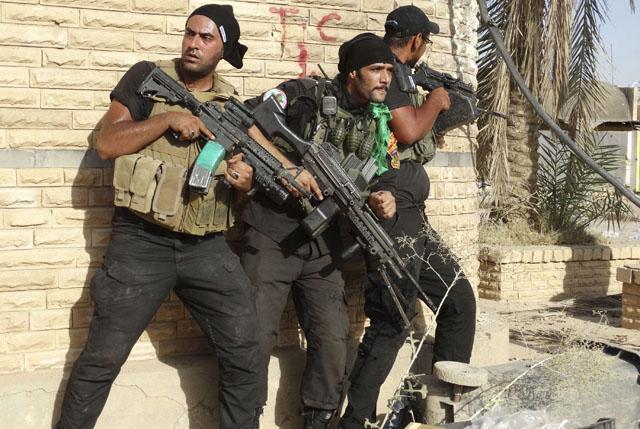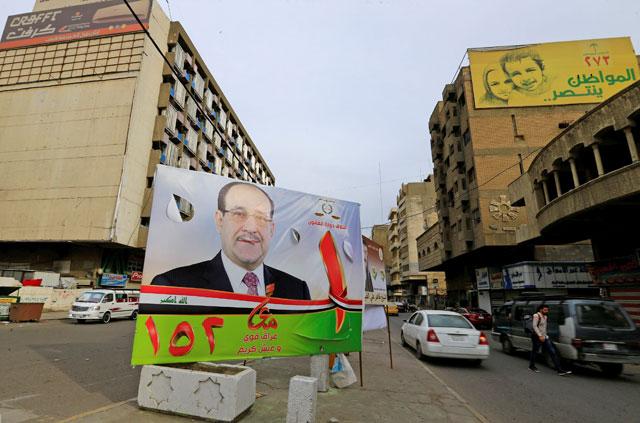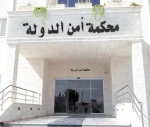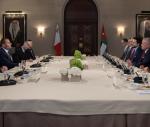You are here
Five key questions on Iraq’s election
By AFP - Apr 28,2014 - Last updated at Apr 28,2014
BAGHDAD — Five key questions about Iraq’s general election on Wednesday.
Who are the candidates?
9,039 candidates from 277 political blocs are standing for a seat in the 328-strong parliament.
More than 20 million Iraqis are eligible to vote, with 48,796 polling stations nationwide.
Tribal allegiances and sectarian affiliations play a key role in voting.
No single party is expected to win a simple majority on its own and subsequent coalition negotiations are expected to take months.
Who is the favourite?
Prime Minister Nouri Maliki ‘s State of Law Al liance is widely expected to win the biggest number of seats.
With no unifying opposition figure, Maliki is expected to stay in the post he has held since 2006, despite unrest, a struggling economy and critics who say he is consolidating power.
Shiite blocs challenging Maliki include the Ahrar movement linked to cleric Moqtada Al Sadr and the Citizens bloc, a formerly powerful group seen as close to Iran.
What impact will violence have?
The election comes with almost 3,000 people killed this year, fuelling fears that Iraq could slip back into all-out conflict and the bloody Shiite-Sunni sectarian war of 2006-2008.
The bloodletting has sharply raised sectarian tensions. Minority Sunnis who were in ascendance for decades under Saddam Hussein accuse the Shiite-led government of discriminating against them.
The militant takeover of a town near Baghdad sparked worries they may try to encroach on the capital itself.
Who will take power?
Under an unwritten agreement, the president is Kurdish, the prime minister is a Shiite and Sunnis choose the speaker of parliament.
Iraqi leaders have in the past opted for national unity governments, but Maliki has pushed for a majority government, arguing that it will be better able to pass legislation.
Which outside actors have a say?
Iraq borders Iran, Syria, Turkey and Saudi Arabia, and politicians frequently claim neighbouring states influence policy and negotiations.
The United States is seen as having lost influence since its troops withdrew in December 2011, but it is still Iraq’s main arms supplier.
Iran is seen as having a strong influence over who becomes prime minister and is regularly accused of directly funding individual parties.
Maliki has also blamed the civil war in Syria for higher levels of unrest in Iraq, and accused Saudi Arabia and Qatar of backing militants.
Related Articles
Regional power broker Iran believes Iraqi Prime Minister Nouri Al Maliki is no longer able to hold his country together and is looking for an alternative leader to combat a Sunni Islamist insurgency, senior Iranian officials said on Tuesday.
Regional power broker Iran believes Iraqi Prime Minister Nouri Al Maliki is no longer able to hold his country together and is looking for an alternative leader to combat a Sunni Islamist insurgency, senior Iranian officials said on Tuesday.
BAGHDAD — Former Iraqi Prime Minister Nuri Al Maliki fulfilled his life-long goal of wresting power from the country’s minority Sunnis after

















